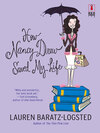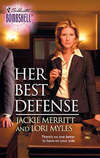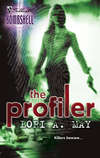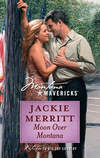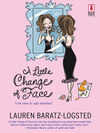Kitabı oku: «How Nancy Drew Saved My Life», sayfa 4
I never felt sorry for Alissa. I could see how cold she was, had no problem believing Buster that for her it had always been a marriage of convenience, the cachet of being married to the attaché.
And so the Saturdays piled up, whenever he wasn’t out of town on diplomatic business. The Saturdays piled up until there were nearly three years of them from when we had begun. And during those three hours a week, it was like we were the only two people in the world, a small yellow world with bad TV reception.
Sleep with someone in haste, repent at your own damn leisure, I always say. Well, I always say it now, at least.
Long into our third year together, I missed my period. If I’d been another woman, I never would have panicked so quickly, being just a couple of days late. But I’d always been regular, reliable like calling Western Union for the exact time. If I’d been a more practical and less in-love woman, I might have concluded that the delay in my period had to do with the anorexia I’d been flirting with, the lack of appetite brought about by my advanced state of in-loveness leading to a dramatic weight loss that had disturbed the tides of my regular cycle.
I told Buster, not too trepidatiously. After all, wasn’t this what we had been intending all along? Okay, so maybe this was a bit sooner than we would have liked, but did it really matter so very much if we’d jumped the gun by just a smidgen?
And that was when Buster offered me money to go away and have an abortion. I was crazy to think we could do this thing, he said. It would destroy his career, he said. His wife would take him to the cleaners, he said.
How quickly you can go from thinking someone is the greatest person who lived to thinking they don’t deserve you, never deserved you in the first place. Sometimes, the freefall out of love is quicker than the fall into it.
I didn’t want Buster’s money, of course, didn’t need it. But I also had no intention of aborting his child. I’m not trying to take a moral stand here on what’s right, pro-choice or pro-life, but if you push me I’ll tell you I’m pro-choice and only wish that more people, me included, were more careful about their choices ahead of time. But I couldn’t see destroying something that had been conceived in what I could still only think of as love. I had loved Buster, Buster had loved me, and any child of ours would have a great set of brains.
Okay, so maybe he or she would suck at math, but with my verbal skills—written, more than oral, “I guess” I’d have to say—and Buster’s sense of geography, any child of ours would still have a great set of brains.
Buster was livid, said if I was going to talk like a crazy woman, I should leave sooner rather than later.
And that was when I got the cramp, not a convenient miscarriage cramp as you might think, just a delayed-period cramp, so severe because of the delay, the buildup.
As soon as Buster realized what it was, he was contrite. Wouldn’t I stay? Wouldn’t I forgive him? Surely I understood: he had merely panicked at the suddenness of everything. If I hadn’t dropped the news on him so suddenly, so out of the blue, he would not have reacted so. If I were to tell him the same thing right now, he would most definitely react differently. Couldn’t we just make love to reseal our faith and love in one another? After all, we’d made love while I was on my period many times before…
I packed my things the same day.
It is a truth universally unacknowledged that just because you’re sleeping with your charges’ father, it doesn’t mean you can’t be a good mother to kids. But I wasn’t a good mother to Stevie and Kim, of course. I was a great mother. And when it came time for me to go, it killed me to leave them behind. I would have liked to stay on long enough to help them grow up all the way—they were eight and six at the time I left. But one of the most important lessons life teaches you is to tell when a thing is over and it’s time to move on.
I did not want to see Buster ever again, but I knew he would give me a good reference. After all, he wouldn’t want to risk my wrath, not knowing what my wrath might be.
Loving Buster had made me feel spectacular, special, and now I was back to being as ordinary as dirt.
Well, I certainly wasn’t going to tell Mrs. Fairly that. So instead, I lied.
When she’d asked about the conditions under which I’d left my previous position, I eschewed the pregnant-nanny story and told her instead that it was simply time to move on, that with Stevie now eight and Kim now six, they seemed too old, too involved with their own worlds to need me so much, and the position had become no longer sufficiently challenging.
“But Annette is already six,” Mrs. Fairly objected to my reasoning. “Will you find that she too doesn’t need you enough, that she is insufficiently challenging?”
“Oh, no,” I allayed her fears in cockeyed fashion. “The Keating children were New York children. After a certain point, what more could they possibly need? But Annette will now be an Iceland child. I’m sure she’ll need all kinds of things in her new situation and will prove challenging for some time to come.”
Well, it worked for me.
What Would Nancy Drew Do?
I was convinced that, in similar circumstances, being the nanny in an ambassador’s home, there were a lot of things I did that Nancy would never do. But I was sure she would hug and kiss those two dear children goodbye and tell them she loved them and was proud of them and was only a phone call away should they ever need her, and I did all that. I don’t know if Nancy would have cried when she hugged and kissed Stevie and Kim goodbye, but I did that, too.
The flight from New York to Reykjavik takes seven hours, more than enough time for a person to relive the biggest mistake of her life while sitting next to an old man who now hates her guts because she won’t tell him what ideas she has for what she wants to write about, because she doesn’t know, nor will she steal his.
But all bad things must come to an end.
Or so I thought.
Just as I was envisioning the plane touching down without incident, the copilot emerged from the cockpit, tool kit in hand, as the pilot made an announcement.
“Ladies and gentlemen, we have a slight problem with the landing gear…”
“Slight problem?” George gulped beside me, his old eyes suffused with fear as the copilot bustled past us and proceeded to cut a big rectangle out of the carpeting.
“I’m sure everything is fine,” said the pilot, “probably just a malfunction on the landing-gear light.”
“Malfunction?” George looked as if he was going to be sick.
I felt sick, too.
Why had I ever gotten on this plane? my mind shrieked. Sure, people said that flying was safer than driving a car, but that was for other people who were not control freaks like me who never felt safe unless she could feel the earth. Besides, I didn’t even drive a car!
I was about to go into a panic, like most of the people around me, when I saw how truly upset George was, silently praying to himself as he watched the copilot disappear down into the plane.
What Would Nancy Drew Do? I wondered frantically.
I pictured that titian-haired retro girl and suddenly I knew exactly what she’d do: she’d remain calm on the outside, no matter what thoughts were going through her head, and she’d offer comfort to anyone who needed it.
I put my hand over George’s wrinkled one.
“It’s going to be okay,” I said.
George was still muttering, saying tearful goodbyes to his grandchildren.
“Really,” I said. “I’ve been through this kind of thing a hundred times.”
That stopped him. “You have?” he asked.
“Yes,” I lied, wondering if Nancy Drew ever lied to make someone else feel better. Probably not, I figured: one, she was probably morally against lying; and, two, with fifty-six cases under her belt, she really had been through everything a hundred times!
“Yes,” I said again, “and it always turns out okay in the end.”
“It does?” George asked, wanting to believe.
“Of course,” I said. “You’ll have an exciting story to tell your grandkids the next time you see them. Why, you should just look at this as material for that story you’ll one day write.”
“Ha!” he said, regaining some of his former spirit. “I thought you were the writer!”
Still, he clung to my hand right up until the copilot emerged from the bottom of the plane.
“Everything’s fine,” the copilot announced to cheers. “It was just as the pilot said—must have been a malfunction with the light.”
Even still, it was treated as an emergency landing, fire trucks screaming beside the plane as we hit the runway.
“Thank you,” George said so softly I almost couldn’t hear him over the sirens. “You made me feel better.”
And I realized that while I’d been busy making him feel better, I forgot about feeling scared myself.
After the plane came to a complete halt without incident, I managed to remove my carry-on bag from the overhead bin without giving myself a concussion, and I was on my way to my new life.
In Iceland, I would reinvent myself.
In Iceland, I would become a new person.
“I hope you figure this place out,” George said in parting. I thought that he was wishing me well, but then I saw from the look in his eyes that he’d forgotten about clinging together when we thought we were going to die and had now reverted to resenting me for being The Writer Who Refused To Tell His Story. I became sure of it when he added, “Not that I think that’s likely.”
What do you say to something like that?
“You know,” George said, studying me, “some people don’t deserve a helping hand.”
Now, where did that come from?
Then it hit me and I snap-pointed at him. “The Bungalow Mystery, #3! You’re quoting The Bungalow Mystery at me!”
He gave me a look of grudging respect. “Got it in one,” he conceded.
chapter 5
Isurprisingly hadn’t brushed up on my knowledge of Iceland before flying into the country. It was an adventure, right? I should just be winging it rather than overplanning it, right?
Just before leaving JFK, feeling a frisson akin to guilt that I should at least prepare in some way, I’d purchased a couple of guidebooks—Lonely Planet’s Iceland, Greenland and the Faroe Islands, Fodor’s Scandinavia and a series that was new to me, Hanging Out in Europe.
Then I’d shoved them in my bag and proceeded to spend the entire flight bumming about George and taking my scenic trip down Bad-Memory Lane.
Maybe I was in denial. Maybe I was in denial because I’d left a rarely beautiful, crystal and completely non-humid midsummer New York day for…
RAIN!
I heard it before I saw it, pelting the tiny windows of the plane as I waited in line to debark. In a sudden panic over my own unpreparedness, I rifled through my bag—passport, money, cigarettes, just in case I needed to become a smoker again—and whipped out Lonely Planet.
Index.
Let’s see…climate, climate, climate…
It said this time of year I could expect a daily temperature of 10.6ºC. Great to know, but not fucking helpful. I was a Fahrenheit girl. Who made Lonely Planet, the Europeans?
I reached for the Fodor’s instead. They seemed like reasonable people.
Climate, climate, climate…
Ha! This one said 14ºC—the guidebooks couldn’t even agree with one another on average daily temperature! I mean, it’s not something like a restaurant review, which would be subjective—“The lutefisk rocks!” “The lutefisk sucks!” It was weather, for crying out loud! Wasn’t that supposed to be an exact science? Then my eyes saw that in the Fodor’s, they gave average daily highs and lows and the high was 14ºC, while the low was 9ºC, which was closer to the Lonely Planet listing. So maybe the Lonely Planet people were pessimists. Then my eyes shifted to the right and I finally saw a Fahrenheit listing. Daily high: 57ºF.
In summer.
I switched to Hanging Out in Europe. They didn’t bother with Celsius at all, which kind of made me like them more: 58ºF.
It also said that during summer months, now, the warm season—ha!—the nights stay incredibly bright with sunlight, with the sun only dipping below the horizon for a few hours every day, the sky never getting completely dark. Hanging Out in Europe seemed to be the optimist in the bunch and this didn’t sound too bad, but then they spoiled the effect by saying the weather changes rapidly and that a beautiful summer day could be wiped out in an instant by cold rain and high winds.
I switched one last time to see what the pessimists had to say about the weather beyond their mean and meaningless 10.6ºC. Lonely Planet said that, “Periods of fierce, wind-driven rain (or wet snow in winter) alternate with partial clearing, drizzle, gales and fog to create a distinctly miserable climate. It’s mostly a matter of ‘if you don’t like the weather now, wait five minutes—it will probably get worse.’” It said that in the month in which I was living, just one single fine day was considered to be the norm.
What in God’s name was I doing here?
I’m a Jewish girl. We hate being cold! It is a mistake to let us get wet!
I hadn’t even brought any kind of rain slicker.
“Oh, yeah,” George crooned from behind me. “You’re doing just great so far, aren’t you?”
What Would Nancy Drew Do?
She’d have read the damn guidebook, she’d have read all available information, she’d have done research before coming here.
Screw it.
Of course, she’d also still be nice to George, no matter what he said to her.
Screw that, too.
The first thing that struck me about the terminal at Keflavik Airport was all the duty-free shops. Everywhere I looked, there were these shops and the chief product they were all selling was chocolate, chocolate in massive industrial-size bags that were bigger than anything I’d ever seen in my own supersize-it country. You would think that with all of that chocolate, Icelanders would be the fattest people on the planet, but everywhere I looked, with the rare tourist exception, there were tall and beautiful and blond people making their graceful way through the airport, as though they were peopling the Scandinavian equivalent of Stepford, toting their duty-free booty.
One of the nice things about being employed by an ambassador is that there is a car and driver to meet you at the airport: I realized this as soon as I saw the man standing there holding a placard that said Nanny Bell. As George, who was waiting in line for the bus, shot daggers at me—I was sorely tempted to stick my tongue out at him, our brief flirtation with being friendly already a thing of the past—I let Lars Aquavit take my bag and lead me out to the embassy car at the curb.
Actually, his name wasn’t really Lars Aquavit, but I doubt I could spell and certainly cannot pronounce the name he gave me, so let’s just leave it at Lars Aquavit.
Lars was tall, blond and beautiful, and I was quickly realizing that those three adjectives were going to soon grow redundant for me. Oh, well. Maybe to these people I would seem exotic and they would crown me Miss Iceland and send me off as their emissary on an all-expenses-paid trip to the next Miss Universe Pageant.
Yeah, right.
Lars also had a slim silver cell phone glued to his ear. I would have thought this rude, but everywhere I looked, all the other beautiful Icelanders were doing the same. It seemed to be a cultural thing, even more than back home.
Somehow, Lars managed to use his cell-phone hand to also juggle an umbrella over our heads, so what had I really to complain about? At least I wasn’t getting wet.
The other cultural thing about Icelanders that I noticed right away was that a lot of people seemed to be smoking. Back home, where smoking had replaced being a witch as the number-one reason to burn someone at the stake, I’d been forced to slowly quit over time and, of course, I’d certainly never smoked around the Keating kids. After all, what kind of an adulterous nanny would I be if I both slept with their father and smoked within sniff of their button noses?
But once Lars had me seated comfortably in the back seat and climbed behind the wheel, he lit up, drawing long and hard on his slim cigarette, and that curling smoke sure looked tempting.
Weren’t Icelanders supposed to have the highest life expectancy on the face of the planet? I seemed to recall reading that somewhere several years back. Maybe those statistics—Best This, Best That—were revised every year and maybe some other country had outlived them, but still, I distinctly recalled the article saying the average Icelander lived eighty-four years. Eighty-four healthy years. So how come they could smoke like chimneys and we couldn’t?
“Um, excuse me?” I called up to Lars.
“Yes, Ms. Bell?”
“Your cigarette,” I said.
“Oh, I’m so sorry.” He reddened, moved to stub his cigarette out. “I forgot how much you Americans detest—”
“NO!” I stopped him. “I was just wondering…”
“Yes?”
“Could I maybe bum one of those off you?”
“‘Bum’?”
“Borrow, obtain, get. I can pay you for it.” I reached in my bag, looked for my wallet.
“Don’t be silly,” he laughed, handing the pack back over the seat, the flip-top lid open, a slim cigarette sliding out. I felt like I was in the middle of a Newport commercial, only the brand wasn’t one I recognized. “Please help yourself.”
I helped myself.
“I’m sure,” said Lars, “that Ambassador Rawlings would want you to have every comfort you need, so smoke as much as you like.”
I could get used to this, I thought, lighting up, but I still wasn’t going to smoke around Annette.
Lars Aquavit was chattier than I would have expected an Icelander to be. Weren’t these people supposed to be reserved or something?
Perhaps “the master”—more likely, Mrs. Fairly—had told him that it was part of his job to make me feel at home and that “at home” for an American meant gabbing up a storm until the cows came home on the range.
“Did you know,” said Lars Aquavit, “that Iceland is so small in population that we all feel as though we know one another?”
As I looked out the window, and saw pairs and groupings of people walking companionably with one another, it looked as if it might be true.
“It’s true,” Lars Aquavit nodded at my reflection in the mirror, as though I’d somehow tried to deny it. “And some of us really do know everybody!”
“That sounds wonderful,” I said, wondering even as I spoke if I really meant it.
Would it be great to know everybody? Would it be great to have everybody know you? I had my doubts.
“Tell me something,” Lars Aquavit said, in what sounded to me to be an uncharacteristically challenging tone of voice, “in your country, if you wished to meet the president to discuss some small matter with him and you just tried to call him up on the phone, what kind of response would you get?”
“You mean before or after the FBI and CIA came knocking on my door with questions about what I was really after, perhaps taking me into detention until they could ascertain that I was a harmless nut as opposed to a harmful one?”
He gave the matter some serious thought.
“I suppose,” he finally said, “it would need to be after.”
“They’d say no,” I said. “They’d probably suggest making a campaign donation, but even if I did that, they’d still say no.”
“Ah, you see?” he said. “Here it is much different. Here, any citizen can call up the president’s secretary and request an audience to discuss whatever they want.”
“You’re kidding,” I said.
“No,” he said, “kidding is not something that I am prone to. Why, just last week, I called up the president and we had lunch together the very same day.”
What a country. A chauffeur could call up the president and, rather than finding himself in someplace like Guantanamo, wind up with an invitation to eat.
It seemed impossible. I wanted to accuse Lars Aquavit of kidding me again but remembered that it hadn’t gone over well the first time.
“Wow,” I finally said, “the same day? That’s amazing.”
He shrugged.
“I suppose it helps,” he said, “that, of course, the president is my cousin.”
“Your cousin?”
“All right, my second cousin. But still a cousin, of course.”
Of course.
What a country. It was like Lilliput, except that everyone was tall.
If I had been less exhausted and less jazzed—I’d left at six in the evening, hadn’t slept, and now it was the morning of a new day!—I’m sure I would have looked out the window some more, enjoyed the scenery, taken in my new surroundings.
But I was beat and teetering on the edge of an “I’m starting a new life—HELP!” breakdown. All I had the ambition to do was lean back in the black leather seat, with the driver who was the second cousin to the president of the country steering the way, close my eyes and puff away until the nicotine rush transported me to a heady place. Iceland and I could get to know one another better at a later time.
One other thing I’d noticed at Keflavik Airport, even while rushing to keep up with Lars at the time: in addition to all the big chocolate, all the ubiquitous cell phones, all the superfluous height, all the blinding blondeness and beauty, an inordinate number of Icelanders had been walking around with copies of Nancy Drew books in their hands.
What was up with that?
Up until a couple of months ago, Nancy Drew had been no more than a dim memory from my childhood. I’d managed to live basically without her all my life. But now, it was as though she was everywhere!
So, really, what was up with that?
I took another puff and sighed.
I would figure out that mystery later.
The United States embassy was on Laufasvegur 21.
When I walked through the front door, Mrs. Fairly was there to greet me, dressed in what I now assumed was her ever-present black, every single blue strand of hair perfectly in place.
I had opened my eyes long enough on the drive from the airport to note that Reykjavik was a low-lying city, which to me meant no tall buildings like I was used to, and that the houses were all close together, all painted white but with sloping roofs that were painted in bright jewel tones: reds and blues and greens and yellows and purples. It was somehow tropical looking, like what you’d expect to find in the Caribbean, not on a place with a cold and unforgiving climate, one whose name had even been taken from the word to describe what results when the temperature drops below 32ºF or 0ºC for that matter—ha! I was learning conversions!
As soon as I saw Mrs. Fairly in her black clothes and blue hair, it occurred to me how strongly she must stand out against the foreign landscape we found ourselves in and I resolved, as soon as I had the time and energy, to take to task my own not-too-great wardrobe so that even if my curly black hair made me stand out, I could at least just a little bit fit in.
“Come in, dear…” She opened wide the door, more grandmotherly than she had been upon our first meeting. “The master is away at one of those weather summits to which he’s always getting called away and I think that perhaps is a very good thing.”
I entered, looked around: a higher ceiling than expected from the outside, but, other than that, just another entry hall.
“Why do you say that?” I asked.
Lars brushed politely past me and I followed the progress of my bags as he took them up the narrow staircase to an upper floor. I wondered where he was going with them. Wasn’t it my naptime yet?
Reluctantly, I turned back to Mrs. Fairly.
“Of course it’s a good thing,” she said. “You wouldn’t want to be meeting the master after a long plane flight, what with you being all jet lagged and everything.
“You’ll do much better meeting him,” she continued, “after you’ve had a good night’s sleep, preferably two, and have a chance to get acclimated to your new surroundings and responsibilities. It wouldn’t hurt, either, if the weather summit were to go well and he returned home in a better mood than the one in which he left.”
She made him sound so…charming.
“When do you expect him back?” I asked.
It was then Tuesday.
“Ohhhh—” She pressed her lips together, furrowed her brow and thought long and hard on it. “I would guess that Thursday would be soon enough.”
Her lack of enthusiasm for his return should have been another red flag, but then Annette came in, bursting with six-year-old energy, grabbing my hand and pulling me along behind her.
“Miss Charlotte!” she cried in a voice that tinkled like the upper scale of a piano. “Come and see your new room!”
She kept tugging and pulling until I was hurrying to keep up with her as she led me up the stairs.
If Mrs. Fairly looked no different than she had in Manhattan, Annette was like a new little girl here. Gone were the puffy pink dress and white apron, the frilly trappings of overcuteness. Oh, she was still cute, but what with her sturdy jeans and vivid knit sweater, in varying shades of Paris green and lilac and salmon, she looked ready to brave both the elements and adventure. With her dark head of curls, she looked as if she could have been my daughter, outside of the fact that she seemed braver than I felt.
The room she led me to at the far corner of the upper story—how well I knew far-corner rooms from my time at the Keating household—had walls that were a match for the lilac in her sweater, the trim painted in a high-gloss white.
“And look at the bed!” she cried.
It, too, was a bright white, painted over simple yet elegantly curved pieces of wood, far larger than my bed in the Keatings’ had been. It had a lacy blanket that looked as though it had been crocheted for a bridal trousseau, the whole looking more like the dream bed of a girl with princess aspirations than the mean lodgings one would expect for the nanny.
Annette plopped herself down on the edge of the bed and proceeded to bounce. She got quite a lot of action going before she stopped herself, her expression one of dismay.
“What’s wrong?” I asked.
“Is it okay that I do this?” she asked.
There was always something vaguely French about Annette when she spoke, an unnaturally precocious stiltedness for a little girl, as though her father’s previous posting might have been in mainland Europe.
“I suppose,” she went on, “that I should have asked your permission before I commenced to bounce on your bed.”
“It’s quite all right,” I laughed.
There was also something about Annette that made a person’s spirits soar, an unrepressed joy about her that led you to believe she’d never known an unhappy day, despite some of her more seriously earnest speech patterns and the fact that her father, “the master,” sounded as if he might be a stern taskmaster.
“You can bounce away,” I told her. “It’s what some beds are for, I think.”
She bounced a little longer, tentatively at first, then with more energy, then she let it die down.
“Look what else!” she cried, jumping up and running over to a glossy white desk and chair, set up in one corner of the room facing a wall, but at an angle such that someone sitting there could see through the filmy white curtains to the view beyond.
Annette pulled back the curtains, showed me the side-by-side long narrow panes of the window with their latch in the center. She climbed up on what was to be my chair, turned the latch and pushed one of the windows outward, letting in a gust of wind so powerful it slammed the window shut almost immediately. She let the curtain go, sat back down in my chair.
“Mrs. Fairly says you wish to be a great writer,” she said, “so I told Papa he must make sure you had a great desk!”
I was surprised at…everything, really: the consideration for my comfort, the fact that my new employer had done any of this at all, the fact that the genesis of it had obviously come from this small and delightful child.
Everything about the room was perfect, even the cream braided rug on the dark-stained hardwood floor, especially the absence of any distracting TV. For I had come to realize that the reason for my lack of productivity in the Keating household had been due to too much golf.
I liked the room; loved it, in fact.
“I knew that lilac must be your favorite color!” Annette exulted.
Impulsively, I hugged her, missing Stevie and Kim even as I did so, hoping, knowing that I would one day love her as much.
“How did you know that?” I asked.
“Because it is mine!” she said, turning to laugh at her own reflection in the long antique mirror that occupied one corner.
Mrs. Fairly had interrupted us, calling Annette away, telling her that she needed to give me some breathing room to unpack and begin the process of acclimating myself.
I was both sorry and not sorry to see Annette go: she was great company, but she also had more energy than Stevie and Kim combined. And it had been months now since I’d been responsible for the care of small children. It would take me a bit to get up to the speed of a speedy young person again.
Mrs. Fairly perched on the edge of my bed, watching as I unpacked and put away my things in the large white wardrobe. It made me feel uncomfortable to be watched so, as though she was judging every fashion decision I’d ever made in my life and finding me wanting. And it made me wonder: where was my breathing room?
“It looks like you brought things for a Manhattan summer,” she said, eyeing my shorts and tops with a critical eye, “not an Iceland one.”
“I suppose—” I shrugged “—when I get some time off, I can shop for more appropriate things.”
“Time off?” she said. “Yes, I did want to talk to you about your schedule now.”
Ücretsiz ön izlemeyi tamamladınız.
